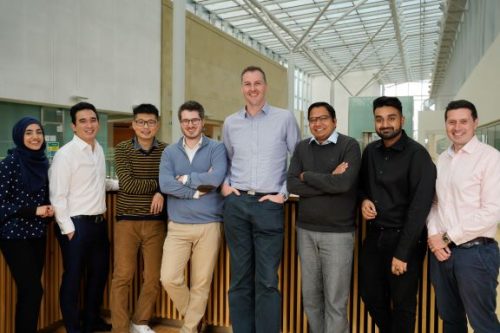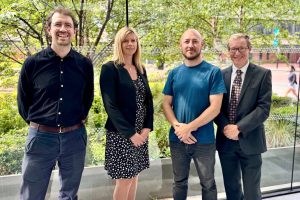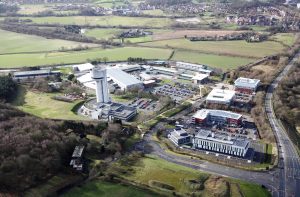£1.26m support for Manchester Medtech revolutionising brain tumour treatment

Manchester medical device company, QV Bioelectronics, has been awarded a £1.26m grant in preparation for its first in-human trial linked to treatment of aggressive brain tumours.
QV is the developer of QV-GRACE, a first-in-class implanted Electric Field Therapy (EFT) device for brain tumours.
The funding is from the highly competitive Biomedical Catalyst programme.
Recent preclinical studies have demonstrated strong efficacy with QV’s technology, helping to advance GRACE towards clinical application and the future of glioblastoma treatment.
Treatments for brain cancer have changed little in decades, with limited effectiveness and poor outcomes. GRACE is the first fully implanted EFT designed to deliver continuous therapy in the brain.
Currently in preclinical development, the implant uses electric fields to disrupt cancer cell division while sparing healthy tissue.
QV, based at Alderley Park, is pioneering implantable bioelectronics in oncology to improve survival and quality of life for brain tumour patients.
The Biomedical Catalyst funding will support key preclinical, regulatory and clinical readiness activities, including device validation, further safety testing and engagement with the MHRA and NHS Research Ethics Committees.
It will also support the formation of a clinical steering group and preparations for an initial human study.
QV has reported encouraging preclinical safety and efficacy data, holds multiple granted patents, and has secured more than £3m in grant funding alongside in excess of £3m in equity investment.
The company is working to establish GRACE as a future first-line treatment for glioblastoma, with future potential in paediatric and metastatic brain tumours.
QV Bioelectronics CEO, Dr Christopher Bullock, said: “This grant represents a strong vote of confidence in our technology from a highly respected Innovate UK programme.
“The funding will enable us to achieve key milestones as we move our world first technology towards patients for the first time.”
Paul Brennan, Professor of Clinical and Experimental Neurosurgery, Honorary Consultant Neurosurgeon and Clinical Director of Neurosurgery at the University of Edinburgh and NHS Lothian, said: “GRACE represents a promising new approach to treating glioblastoma, a particularly aggressive brain cancer.
“The ability of Electric Field Therapy to target tumour cells while sparing healthy tissue has the potential to significantly improve patient outcomes and quality of life.” He added: ”At the University of Edinburgh, we have contributed to the development of this project and are excited about the prospect of the first in human study.”








